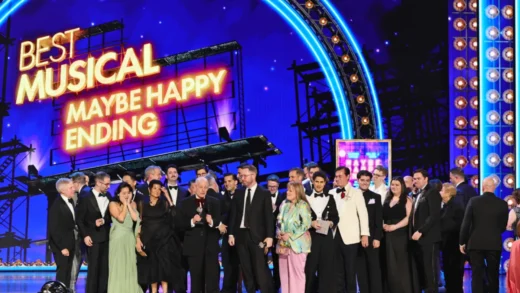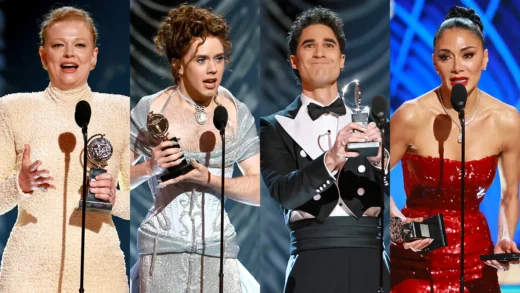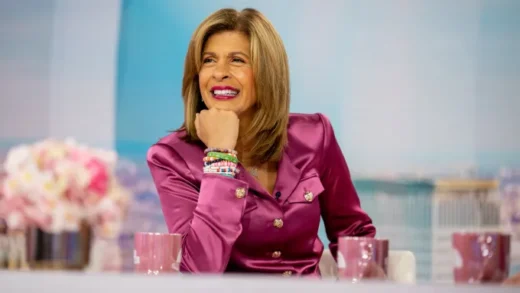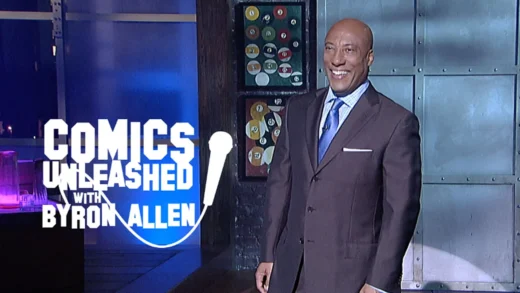Surrounded by chants of “Hey, hey, ho, ho, Donald Trump has got to go” and signs declaring “Girls Just Want to Have Fun-damental Rights” and “F—k Harvey”, actress Mira Sorvino snaked through the crowd gathering at Grand Park for the Women’s March rally in Los Angeles.
“She won an Oscar,” a rally participant whispered to her friend as Sorvino walked past. Indeed, Sorvino – like fellow celebrity participants Marisa Tomei, Natalie Portman and Rob Reiner, among others – is an Academy Award winner, but for many of the famous faces addressing the crowd of 700,000, the experiences they shared were echoed across all socioeconomic groups.
Portman told the audience how she at age 13 discovered what it is like to be objectified, when her film debut The Professional, about a young girl discovering her voice and womanhood, premiered. “I excitedly opened my first fan mail to read a rape fantasy that a man had written me,” said Portman. “A countdown was started on my local radio show to my 18th birthday, euphemistically the date that I would be legal to sleep with. Movie reviewers talked about my budding breasts in reviews. I understood very quickly, even as a 13-year-old, that if I were to express myself sexually, I would feel unsafe.”
Portman says she adopted a bookish persona and covered her body to avoid unwanted sexual attention. “I emphasized how serious I was,” she said. “I built a reputation for basically being prudish, conservative and nerdy in an attempt to feel that my body was safe and that my voice would be listened to.”
To those criticizing the #MeToo movement as puritanical, Portman wanted to send a message that that is not the case. “Let’s declare loud and clear, ‘This is what I want. This is what I need. This is what I desire. This is how you can help me achieve pleasure.’ To people of all genders, let’s find a space where we mutually, consensually, look out for each other’s pleasure.”
Fresh Off the Boat’s Constance Wu, who joined Portman on stage together with actress and activist Eva Longoria, recalled the first time she brushed off a man’s sexual advances. “He called me a bitch,” said Wu. “He said, ‘Who do you think you are?’” The actress acknowledged that the #MeToo and Time’s Up movements are making many uncomfortable. “This movement is not about catering our voices to accommodate more comfort. We are here because we deserve our voices and our perspectives, too,” she said. “To the abusers who have said, ‘Who do you think you are?’ I’m Constance Wu. And as for the bitch part, if you didn’t try to do bitch ass things to us, then we wouldn’t have to be bitches back to you.”
Scarlett Johansson took the stage to explain how she had been conditioned to pander and please because she felt her value as a woman and professional was measured by her desirability to men. “I’ve had many relationships, both personal and professional, where the power dynamic was so off that I had to create a narrative in which I was the cool girl…because it allowed me to have the approval that women are conditioned to need,” said Johannsson. “I’ve come to realize that not just my 19-year-old self, but my schoolyard self, and my married self, and my professional self, have all at times been a victim of this very condition. A condition that I’m certain that a majority of us share.”
Johansson hopes her daughter will grow up in a world where she doesn’t have to be a victim of this social norm. “We must make it our responsibility to teach our children to exercise their own autonomy and ego strength by leading by example,” she said. “I have recently introduced a new phrase in my life that I would like to share with you: ‘No more pandering. No more feeling guilty about hurting people’s feelings when something doesn’t feel right for me. In order to trust my instincts, I must first respect them.’”
(Excerpt) Read More in: The Hollywood Reporter




